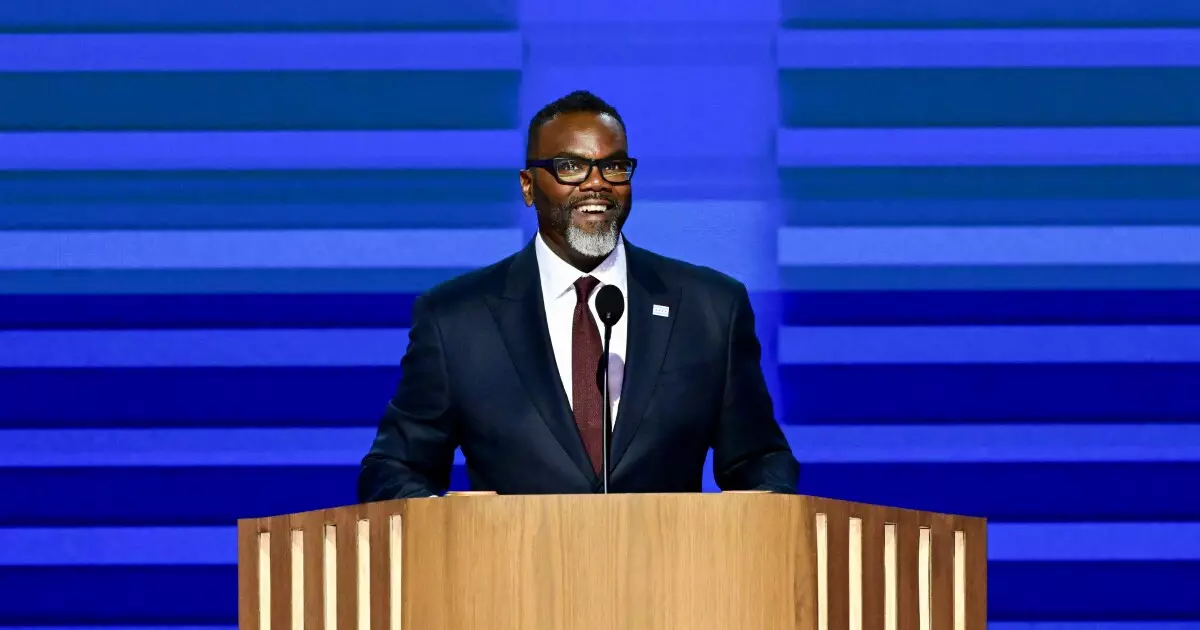Chicago finds itself at a critical juncture as Kroll Bond Rating Agency (KBRA) places its A-rated general obligation bonds on a “Watch Downgrade.” This comes just days before the City Council heads into a pivotal vote on a proposed $300 million property tax increase included in Mayor Brandon Johnson’s 2025 budget. The concerns from KBRA center around a daunting projected shortfall of $982.4 million in the corporate fund for 2025 and a series of credit challenges that raise red flags for investors and city residents alike.
The implications of this rating watch resonate beyond mere numbers; it signals a potential erosion of investor confidence in the city’s financial health. The KBRA highlighted specific areas of concern, notably Chicago’s dependency on one-time financial solutions to bridge budget gaps, which raises questions about sustainability in fiscal management. The commentary from KBRA’s senior director, Linda Vanderperre, emphasizes the need for the city to confront its structural deficits through reliable revenue streams rather than temporary fixes. Failure to timely address these issues could cloud the city’s financial future and borrowing capacity.
Mayor Johnson’s proposed budget attempts a balancing act of sorts—80% structural fixes and 20% one-time revenue sources. The push for a property tax increase stands in stark contrast to his campaign promises, reflecting a deeper struggle within the administration to reconcile ambitious spending plans with grim fiscal realities. This predicament is further exacerbated by a recent report from the Civic Federation of Chicago, which advocated for property tax hikes to be considered only as a last resort.
In addition to the skepticism surrounding the property tax proposal, it was revealed that many city officials are lobbying for a special, separate vote rather than a straightforward acceptance of the mayor’s recommendation. Recent reports suggest that the size of the proposed tax increase might be significantly reduced. This may create a conundrum for the city as it races against the rapidly approaching deadline of December 31, 2024, to balance its budget.
To understand the current situation, one must consider the broader economic landscape that affects Chicago’s financial decisions. The city continues to rely heavily on economically sensitive revenue sources, thereby increasing its vulnerability to economic downturns. With a history of financial mismanagement, the question of sustainable growth is paramount. Mayor Johnson’s administration claims that the challenges stem from reduced federal and state funding, but the underlying structural deficits raise deeper concerns regarding the city’s fiscal governance.
Financial discipline appears imperative as KBRA has already cautioned against the perils of over-reliance on one-time solutions, grounding its analysis on the premise that such strategies can lead to a precarious long-term financial state. Chicago must pivot towards consistent revenue sources to mitigate the increasing burden of pension payments and debt servicing, both of which are becoming increasingly burdensome for the city’s budget.
What the city requires now is a concerted effort toward consensus among its political leaders. The differing opinions amidst the City Council take center stage at a time when cooperation is desperately needed to navigate this financial storm. As sticking points emerge in discussions around the property tax increase, a united front could potentially yield more prudent financial strategies.
As also noted by KBRA, the city’s adherence to established financial and debt policies becomes crucial. Failure to meet the benchmarks set by these policies, especially regarding the budget stabilization fund and pension funding compliance, could spell disaster for Chicago’s credit rating. A robust financial framework would ideally involve a blend of prudent spending, reasonable government initiatives, and a commitment to enhancing the revenue base without over-reliance on temporary fixes.
As Chicago braces for the consequences of its financial choices, it becomes apparent that a balancing act lies ahead. The city’s leaders must steer the ship with intention, making concerted efforts to avoid further degradation of their bond ratings while simultaneously working towards fiscal sustainability. Through transparent governance, community engagement, and innovative approaches to revenue generation, Chicago can hopefully find its way to financial stability in an otherwise tumultuous economic environment.


Leave a Reply